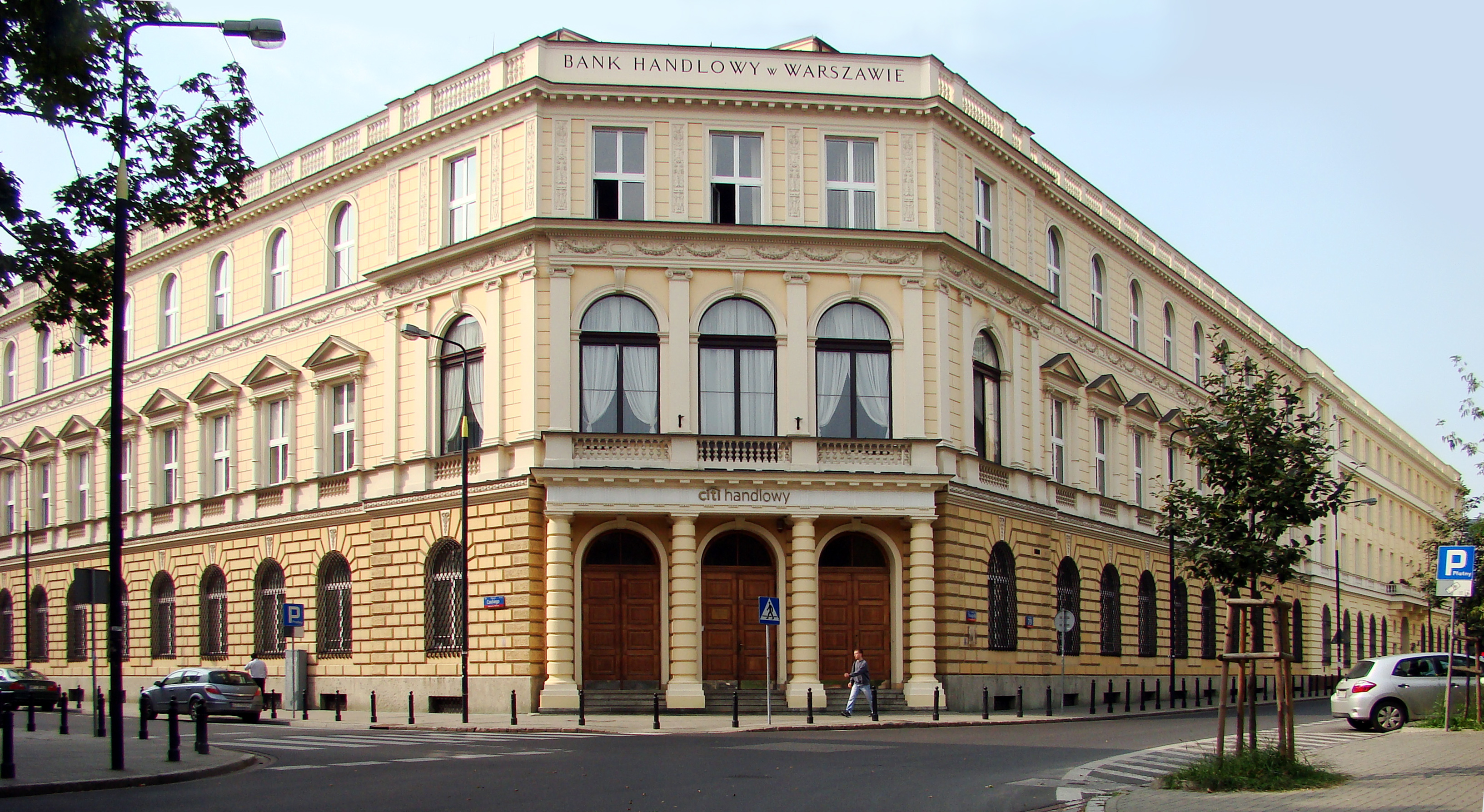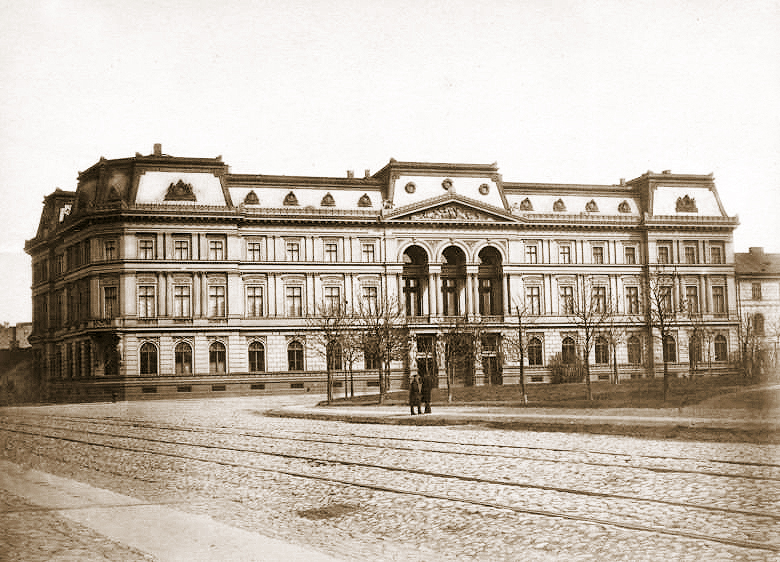Leopold Stanisław Kronenberg on:
[Wikipedia]
[Google]
[Amazon]



 Leopold Stanisław Kronenberg (born 24 March 1812 in
Leopold Stanisław Kronenberg (born 24 March 1812 in
K.Bem, Reformowani Konwertyci, Jednota 7-8/2007
* {{DEFAULTSORT:Kronenberg, Leopold Stanislaw
Kronenberg family
Polish bankers
Polish nationalists
Polish businesspeople
19th-century Polish Jews
1812 births
1878 deaths
Businesspeople from Warsaw
Polish Calvinist and Reformed Christians
Crypto-Jews
Converts to Calvinism from Judaism
{{DEFAULTSORT:Kronenberg, Leopold Stanislaw
Kronenberg family
Polish bankers
Polish nationalists
Polish businesspeople
19th-century Polish Jews
1812 births
1878 deaths
Businesspeople from Warsaw
Polish Calvinist and Reformed Christians
Crypto-Jews
Converts to Calvinism from Judaism



 Leopold Stanisław Kronenberg (born 24 March 1812 in
Leopold Stanisław Kronenberg (born 24 March 1812 in Warsaw
Warsaw ( pl, Warszawa, ), officially the Capital City of Warsaw,, abbreviation: ''m.st. Warszawa'' is the capital and largest city of Poland. The metropolis stands on the River Vistula in east-central Poland, and its population is officia ...
, died 5 April 1878 in Nice
Nice ( , ; Niçard dialect, Niçard: , classical norm, or , nonstandard, ; it, Nizza ; lij, Nissa; grc, Νίκαια; la, Nicaea) is the prefecture of the Alpes-Maritimes departments of France, department in France. The Nice urban unit, agg ...
) was a Polish banker, investor, and financier, and a leader of the 1863 January uprising against the Russian Empire
The Russian Empire was an empire and the final period of the Russian monarchy from 1721 to 1917, ruling across large parts of Eurasia. It succeeded the Tsardom of Russia following the Treaty of Nystad, which ended the Great Northern War. ...
.
Family
Kronenberg came from a wealthy family of Jewish rabbis. His fatherSamuel Eleazar Kronenberg
Samuel Eleazer Kronenberg (né ''Lejzor Hirszowicz Kronenberg''; 1773–1826) was a Polish-Jewish banker and industrialist. The son of Hirsz Kronenberg, he was also a brother of Anna Maria Kronenberżanka Breslauerowa (1781-1853).
Originally from ...
(1773–1826) was a native of Wyszogród
Wyszogród is a town in central Poland, in Masovian Voivodeship, in Płock County, by the Vistula River. The population of Wyszogród was 2,793 in 2004.
History
The settlement dates back to the 7th century, when there was a Slavic pagan temp ...
who led a small bank in Warsaw. His mother was Tekla (Theresa), ''née'' Levi (1775–1848).
Kronenberg had seven siblings: Ludwik, Rozalia, Stanislaw Solomon, Dorota (the mother of ), Maria, Henryk Andrzej (whose daughter Emilia married Polish industrialist Jan Gotlib Bloch, whose family had often been in competition with the Kronenbergs), and . His eldest sibling Ludwik (born Lewek or "Yehuda Arie Leib") was the only one whose family remained Jewish, while the other siblings each converted to Christianity.
After graduating from high school in Warsaw, Kronenberg studied at the University of Technology in Hamburg and at the University of Berlin
Humboldt-Universität zu Berlin (german: Humboldt-Universität zu Berlin, abbreviated HU Berlin) is a German public research university in the central borough of Mitte in Berlin. It was established by Frederick William III on the initiative ...
. Having finished his studies in 1832, he returned to Poland and took up conducting business. In 1846 he converted from Judaism to Protestantism.
He married Ernestyna Rozalia Leo (1827–93), daughter of Leopold August Leo, a prominent Polish Jew who had converted to Lutheranism. They had six children: Stanisław Leopold (1846–94), entrepreneur; Władysław Edward (1848–92), musician and philanthropist; Leopold Julian (1849–1937), banker; Tekla Julia (1851–52); Maria Róża (1854–1944)—wife of Karol Zamoyski, and subsequently of Gustaw Taube—hostess of a famous Warsaw literary salon; and Rozalia (born 1857), wife of Aleksander Orsetti.
Business
From 1839 to 1860, having obtained the concession of the tobacco monopoly in the Kingdom of Poland, Kronenberg amassed a considerable fortune which he used to develop the country's economy: sugar industry, construction of railways, commercial activities, and banking sectors. He was also involved in the rural economy by participating in the work of the Agricultural Society. In 1859, Leopold Kronenberg made his entry into the world of the press by buying the newspaper ''Gazeta Codzienna'', renamed in 1861 as ''Gazeta Polska''. It was a magazine with a liberal-democratic tint, whose editor wasJózef Ignacy Kraszewski
Józef Ignacy Kraszewski (28 July 1812 – 19 March 1887) was a Polish writer, publisher, historian, journalist, scholar, painter, and author who produced more than 200 novels and 150 novellas, short stories, and art reviews, which makes him the ...
.
Kronenberg was an instigator of and a financial supporter of the January uprising of 1863 against the Russians. To avoid arrest by the Russians, he fled to Dresden
Dresden (, ; Upper Saxon: ''Dräsdn''; wen, label= Upper Sorbian, Drježdźany) is the capital city of the German state of Saxony and its second most populous city, after Leipzig. It is the 12th most populous city of Germany, the fourth ...
in June of that year. After the failure of this revolt, he became a representative of the "white" faction that favored a compromise with the Russians. In 1870, Kronenberg founded Bank Handlowy
Bank Handlowy w Warszawie (BHW) or Citi Handlowy is a Polish bank based in Warsaw, established in 1870. It is one of the oldest banks in Poland and Europe. It is the 10th largest bank in Poland in terms of assets, and 18th in terms of number of out ...
, the commercial bank of Warsaw, and in 1875 he founded the Warsaw School of Economics
SGH Warsaw School of Economics ( pl, Szkoła Główna Handlowa w Warszawie, ''SGH''List of Poles
This is a partial list of notable Polish or Polish-speaking or -writing people. People of partial Polish heritage have their respective ancestries credited.
Science
Physics
* Czesław Białobrzeski
* Andrzej Buras
* Georges Charpa ...
References
Bibliography
* Jadwiga i Eugeniusz Szulcowie, ''Cmentarz Ewangelicko-Reformowany w Warszawie'', Warszawa 1989K.Bem, Reformowani Konwertyci, Jednota 7-8/2007
*
Kazimierz Reychman
Kazimierz Reychman (1 November 1882 – 16 August 1936 in Warsaw) was a Polish diplomat of Jewish origin.
He was the son of Nicholas and Anna Chocimska. He served as vice-consul of the Republic in Buenos Aires, then consul of the Republic in Rio ...
: ''Szkice genealogiczne, Serja I.'' Warszawa: Hoesick F., 1936, s. 111–115.
 {{DEFAULTSORT:Kronenberg, Leopold Stanislaw
Kronenberg family
Polish bankers
Polish nationalists
Polish businesspeople
19th-century Polish Jews
1812 births
1878 deaths
Businesspeople from Warsaw
Polish Calvinist and Reformed Christians
Crypto-Jews
Converts to Calvinism from Judaism
{{DEFAULTSORT:Kronenberg, Leopold Stanislaw
Kronenberg family
Polish bankers
Polish nationalists
Polish businesspeople
19th-century Polish Jews
1812 births
1878 deaths
Businesspeople from Warsaw
Polish Calvinist and Reformed Christians
Crypto-Jews
Converts to Calvinism from Judaism